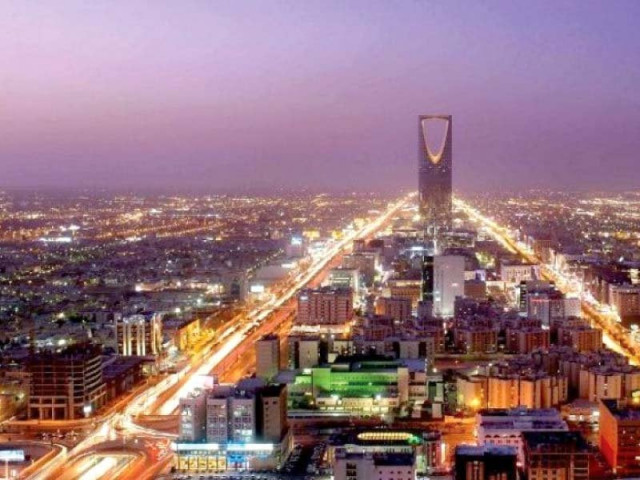Economy under threat: Saudi Arabia to use forex reserves to defend currency peg
Break in peg will immediately raise prices of goods, hit living standards

Unlike in past periods of stress, when Riyadh maintained its currency peg despite low oil prices, it is this time running far higher fiscal deficits in an energy market that has less room to recover. PHOTO: FILE
Currency traders have been betting against the Saudi peg, and those of other regional oil producers, in the wake of oil’s price collapse.
“We see at least a 25% chance of near-term devaluation or 40% if oil prices stay at current levels throughout 2016,” said Societe Generale.
But in Saudi Arabia’s largely dollar-denominated economy breaking the peg would immediately raise the price of goods, hitting living standards. Combined with other pending painful economic reforms, this could lead to unrest.
“Devaluation of the currency or de-pegging would self-inflict destructive economic pain. It would be catastrophic,” said a Riyadh-based economist, John Sfakianakis.
Some diplomats living in Saudi Arabia say privately that a break in the peg is the single biggest political risk facing a country already embroiled in a war in Yemen and suffering periodic deadly attacks by militants.
The biggest Arab economy has only a small manufacturing base and almost all goods come as dollar-priced imports, so a cheaper riyal would instantly make normal Saudis feel poorer without providing any benefit to the wider economy via cheaper exports.
Insulated
Saudi citizens have so far been mostly insulated from the impact of lower oil prices. The cost of fuel is cheap, even after a 50% rise in petrol prices, and the cuts in spending have yet to be felt in employment.
But change is coming. Riyadh promised in its 2016 budget statement to slow increases in the state payroll, meaning few new government jobs, and as Saudi private sector growth closely tracks government spending, this means few private sector jobs.
The impact of a sudden rise in living costs and a collapse in purchasing power in such circumstances from the devaluation could be explosive.
“Especially at this time, because of the difficult reforms coming down the road, it would be very hard to sell to the public,” said Al-Arab News Channel Head Jamal Khashoggi.
Asset cushion
The Saudi Arabian Monetary Agency (SAMA), the central bank, has vowed to maintain the peg of 3.75 riyals to the dollar come what may.
With access to $609 billion of foreign exchange reserves built up during years of higher oil prices, it has a way to go until these are exhausted.
“We think the high level of reserves allows SAMA to maintain the current exchange rate regime for the time being,” UBS research said. “However, challenges are significant, since fiscal buffers might be exhausted within five to six years without any adjustments.”
One-year dollar/riyal forwards - contracts used by counterparties to lock in a future exchange rate - were around 550 points on Thursday, well down from the record 1,000 points earlier this year as some banks and funds hedged against the risk that Riyadh would scrap the peg.
The previous record was 850 points hit during a bout of speculation against the riyal in 1999.
Still, some Saudis say friends or colleagues have started to transfer cash overseas - a sign of fears about the riyal’s resilience.
Absent an agreement with a wide array of other oil producers to rein in output, Saudi Arabia appears set to continue its strategy of defending its share of the crude export market, meaning energy prices are likely to stay low.
“Unlike in past periods of stress, when Riyadh maintained its currency peg despite low oil prices, it is this time running far higher fiscal deficits in an energy market that has less room to recover,” said the Societe Generale’s report.
Published in The Express Tribune, February 6th, 2016.
Like Business on Facebook, follow @TribuneBiz on Twitter to stay informed and join in the conversation.



















COMMENTS
Comments are moderated and generally will be posted if they are on-topic and not abusive.
For more information, please see our Comments FAQ